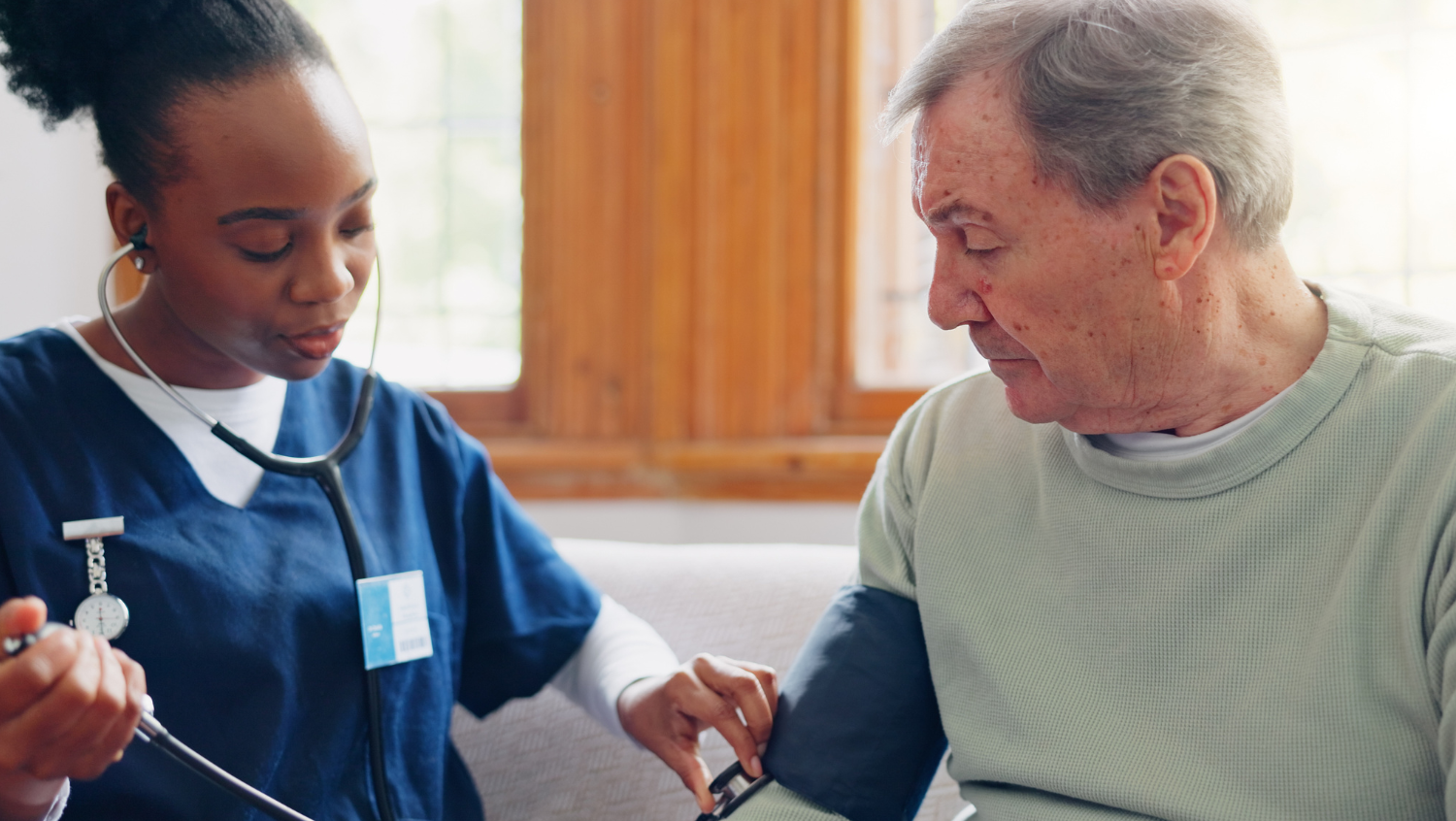Boston Medical Center Hospital at Home Launches to Deliver Acute Care in Patients’ Homes
April 3, 2024

iStock
"We’re so excited that we can care for patients completely in this way. They are so deserving of an opportunity to participate in this innovative form of healthcare."
Breaking down barriers so that patients can access high-quality care is one of the key pieces of health equity. As an essential hospital, Boston Medical Center (BMC) has been committed to delivering transformative models of care that help improve access in its communities — including Curbside Care models, assisting with transportation to appointments, and otherwise trying to meet patients where they are. Care at home clinics have been popping up in the last handful of years, but BMC knew that by offering its new Hospital at Home clinical care unit, which launches today, April 3, it would open the door to an often unavailable model of care for its patient base.
Boston Medical Center Hospital at Home offers hospital-level acute care to patients in the comfort of their own home with the aid of in-person clinician visits, virtual care, and around-the-clock monitoring from a trusted team of BMC doctors, nurses, and other providers.
“This offering is exactly what our patients and our staff have been longing for,” says the clinic’s nursing director, Kate Baudin DNP, RN. “We’re so excited that we can care for patients completely in this way. They are so deserving of an opportunity to participate in this innovative form of healthcare.”
BMC Hospital at Home Medical Director Fitzgerald Shepherd, MD, shares that BMC is already exploring ways to expand its clinical offerings to unhoused patients and those with substance use disorders, continuing its commitment to access and equity.
BMC Hospital at Home: A paradigm shift
BMC Hospital at Home works as an alternative to inpatient care, and patients can be enrolled in this new clinical offering from the Emergency Department or as an existing inpatient. Currently, there are 245 qualifying diagnoses for BMC Hospital at Home, including congestive heart failure, pneumonia, cellulitis, COPD or asthma exacerbation, and COVID-19.
When a BMC patient enrolls in Hospital at Home, they are transported back to their home from the hospital where a specialized team will set up all necessary state-of-the-art technology and equipment to ensure they can be continuously monitored via a command center and can conveniently connect with their care team. Patients receive two in-person visits from a care provider daily — and more if needed. Their vital signs are monitored virtually, and they can easily speak with their doctor or nurse by phone or video call on the provided technology in real time, day or night.
“Hospital at Home represents a paradigm shift in healthcare,” says Shepherd. “It shows that we can carry out our same excellent care for patients within the comfort of their home, with their family and pets — while healing at the same time.”
The origin of home hospital care units
Facing unprecedented overcrowding during the COVID-19 pandemic, hospitals across the country began implementing healthcare delivery models that would allow their patients to stay safely at home while lessening the overwhelming burden on hospital systems. Hospital at home clinical programs popped up in many cities, but like many remote clinics, there were concerns about equitable access.
Hospital at Home represents a paradigm shift in healthcare. It shows that we can carry out our same excellent care for patients within the comfort of their home, with their family and pets — while healing at the same time.
Then, in November 2020, less than a year into the pandemic, the Centers for Medicare & Medicaid Services (CMS) began reimbursing CMS-approved hospitals for home hospital care, allowing Medicare and Medicaid patients the same access as private payors. BMC immediately began careful planning to offer this new option in the most equitable way possible.
A seamless patient experience
Patients receive all the inpatient services they would receive at BMC’s main campus, says Tilar Martin- Asirifi, BMC Hospital at Home’s director of operations, who has spent months behind the scenes ensuring a seamless experience for patients.
“As the current director of inpatient operations at BMC, I understand the day-to-day experience of patients on our inpatient floors, so I can better translate that into hospital-level care at home,” she says. “While the clinical team is caring for our patients, I’m making sure that the overall system is working smoothly.”
Beyond the daily in-home visits and 24/7 remote vital sign monitoring, patients have access to inpatient specialists; pharmacy and medication management; imaging and lab testing; infusion therapy and IV antibiotics, fluids, diuretics, and steroids; stat lab and radiology diagnostics; physical and occupational therapy; oxygen and other durable medical equipment and supplies; inpatient case management resources; and even home-delivered meals — all as needed.
“We are able to take all of the aspects of an inpatient unit and put it into an eligible patient’s house,” says Baudin. “This means patients no longer need to be on our campus to get the care they need to return to their healthiest state of being.”
Martin-Asirifi says that an important piece of BMC Hospital at Home is that family members and other caregivers are never expected to participate in caring for patients in their home: “When a patient is admitted to BMC Hospital at Home, their loved ones can enjoy visiting with them and providing emotional support while our medical professionals take care of all of the clinical care.”
Benefits that go beyond the comforts of home
While Hospital at Home clinics have succeeded in helping to relieve hospitals of dangerous overcrowding, their benefits have outlasted and outgrown the pandemic.
Research shows that not only is in-home, hospital-level care safe and cost-effective, but it also has many clinical, convenience, and mental health benefits for patients, including:
-
Faster recovery times
-
Reduced risk of readmissions, falls, cognitive decline, and secondary infections
-
Convenient, 24/7 access to expert care teams
-
Personalized wraparound services based on the patient’s specific needs and home environment
-
Emotional support from family and pets in familiar, comfortable surroundings
Providers benefit, too, says Shepherd, by being able to address patients’ social determinants of health in the home.
“By offering our excellent care to patients in their home, we’re also able to see holistically what their homes are like,” says Shepherd. “We’re now not only treating our patients on our main campus building, but we’re also able to assess the social issues that might be affecting them.”
Baudin agrees. “With BMC Hospital at Home, we are now seeing patients in the environment that they thrive in every day and discovering what makes them happy in their home. We are able to care for them as an entire person completely. It’s a beautiful thing.”


